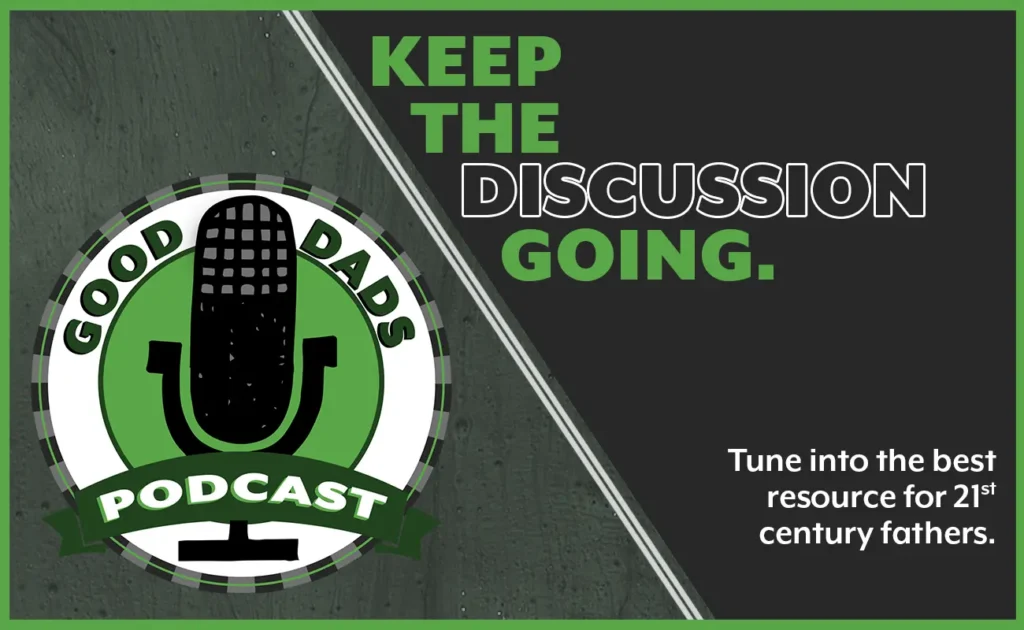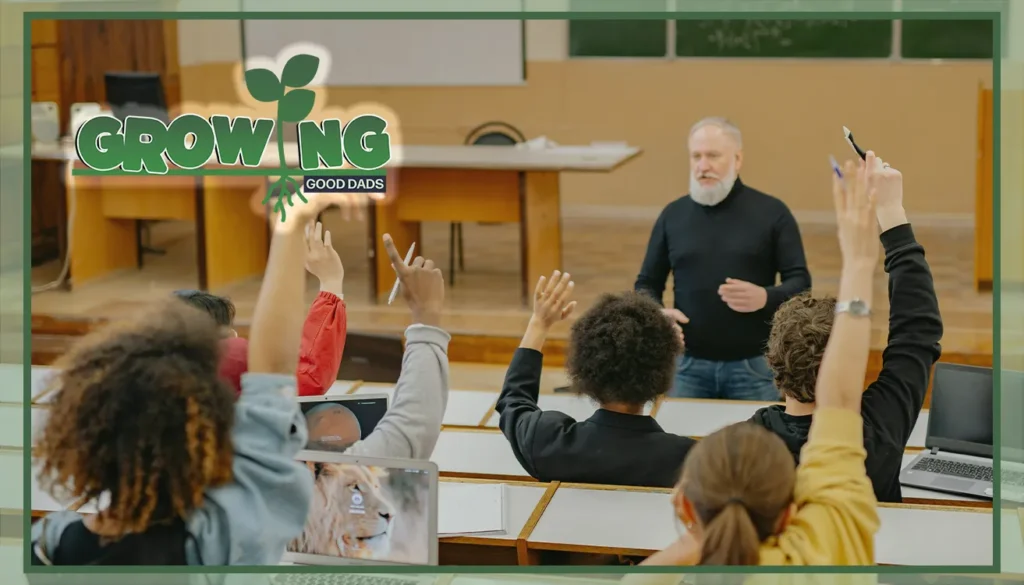Who better to ask than a classroom full of teenagers, “What does it mean to be a good dad?” At Parkview High School, classrooms are full of a variety of perceptions considering its high diversity rate–both multiculturally and socioeconomically. There was hesitancy to even ask the question because that can be a sensitive topic to some, but students were able to type their responses anonymously without judgment. After asking nearly 50 freshmen Algebra 1 students, here were some resounding themes:
- Be there for your kids
- Listen to your kids
- Spend time with your kids
- Get involved in the things your kids are interested in
- Don’t make promises you can’t keep
- Discipline your kids
- Take care of and support your kids

LEARN MORE: E487-Why is it Important for Children to Have Both a Mother and Father?
These are no doubt some of the commonly accepted general expectations of fathers, but the fact that the children themselves are expressing these as important makes it critical for fathers to live up to them. How can a dad expect his child to meet his expectations if he is not meeting the child’s expectations of him? A father must love his child unconditionally and continuously meet the child’s needs and expectations of him. The hope is that this will teach and model how love is at the center of all disciplinary moments. This transaction is one that builds trust and leads to a loving bond. Living up to these foundational expectations is first in the good dad book, but there are countless others one could also consider.
When considering this question through the lens of a teacher, this next response may seem ironic, but as a person who has worked with teenagers for 17 years, it is worth considering. For example, good dads shouldn’t pressure their children to enroll in college as if “that’s just what you do after high school, and you’ll make more money if you have a degree.” That’s terrible advice. Without a plan, this often leads to starting adulthood with student debt and a degree that’s not being put to use. College should be intentional and meaningful preparation for a well-thought-out life plan. There are a lot of details, questions, and discoveries teens can make with the guidance and support of their fathers on this topic.
To dig deeper with your teens and help them make decisions, start getting them involved in the community in as many ways as possible. Help expose them to the vast array of hobbies, interests, careers, and trades that are out there in the world. Having deep conversations about their identity and purpose in the world. Teens are no doubt exploring who they want to become but without guidance and support from dad, they’re left to adhere to societal norms and pressures, be indoctrinated by the media, or tossed and turned by the world while lost and purposeless. Always foster an environment conducive to learning, encourage an open mind, and help your teen make discoveries about who they are and what their purpose is.




